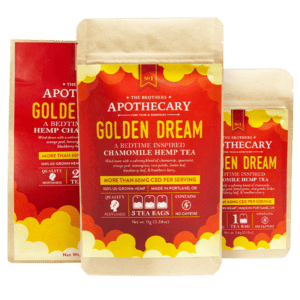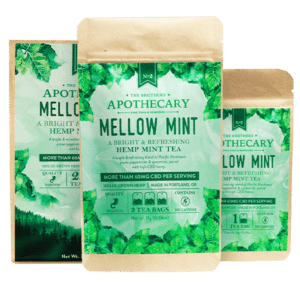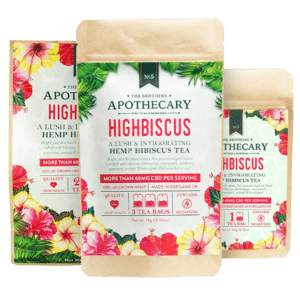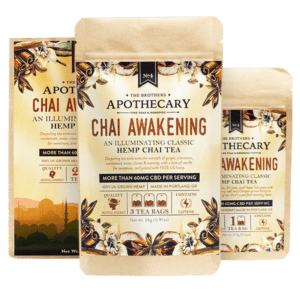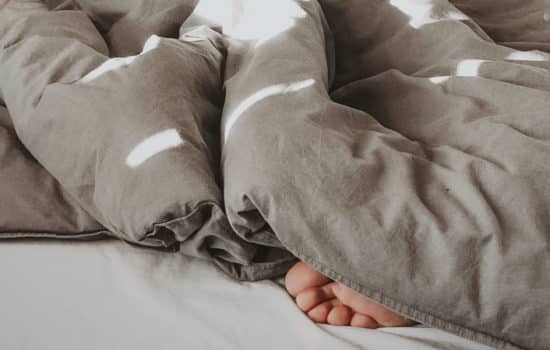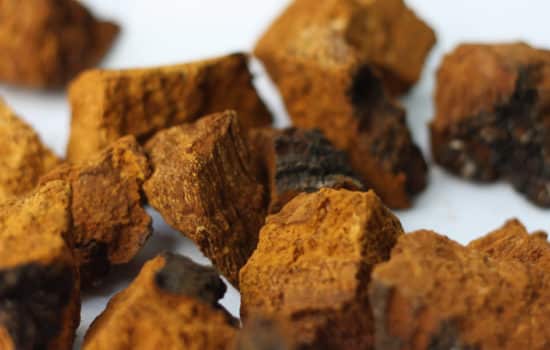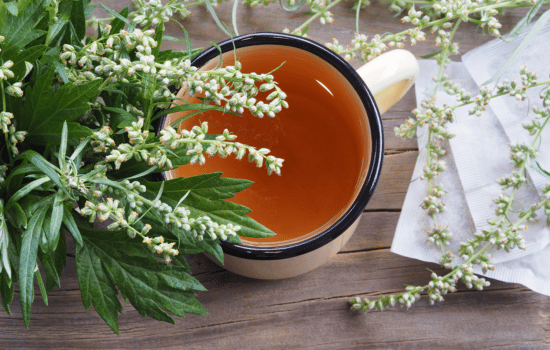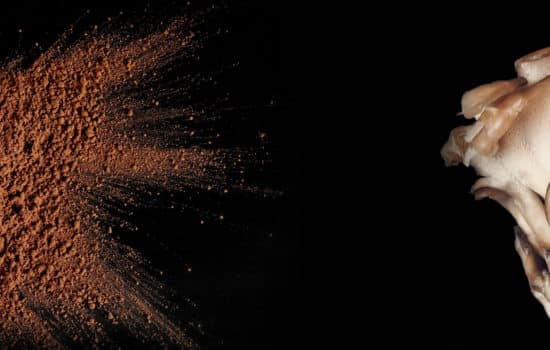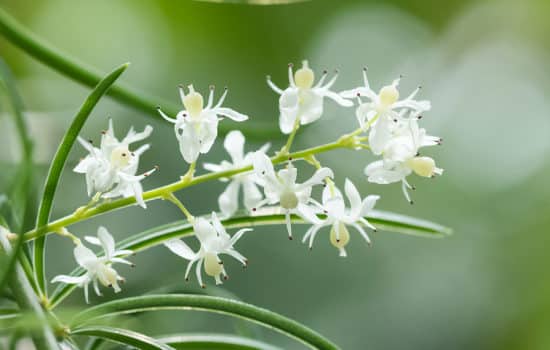Because cannabis has been heavily criminalized and condemned in recent decades, there has been a long-standing belief by many that weed is more dangerous than alcohol.
But, is that really the case?
After decades of fear-mongering and anti-cannabis propaganda, more and more states are legalizing recreational cannabis. And so you may be curious, which is better: weed or alcohol? Which one is best suited for an enjoyable Saturday night (along with the subsequent Sunday morning)? Which one is safer?
Read on to get those questions answered and learn more about the benefits, effects, and risks of weed vs. alcohol with The Brothers Apothecary!
How Does Weed Impact Your Body?
Cannabis can have a unique impact on the body because of how it interacts with the endocannabinoid system (the ECS).
As an internal communication network, the ECS relies on naturally-produced endocannabinoids and cannabinoid receptors to help maintain homeostasis throughout the body. Because phytocannabinoids found in cannabis, such as THC and CBD, are similar to our own endocannabinoids, they can produce similar effects within the body.
The main cannabinoid in weed is THC, and it can impact the body in several ways. THC can bind directly with cannabinoid receptors known as CB1 receptors. These receptors are found throughout the nervous system and are particularly concentrated in the brain.
When THC binds with these receptors in the brain, it can stimulate hunger, trigger mood-regulating, and cause psychoactive effects. Weed can also impact memory and cognitive function as CB1 receptors in the hippocampus are activated.
THC can bind with receptors throughout the body outside of the brain–such as in the muscles and connective tissue–to help reduce swelling and ease physical discomfort. THC may also affect blood flow as blood vessels are relaxed, which can cause increased heart rate.
What Does Weed Feel Like?
The way weed feels can vary from person to person, and even from one use to the next for the same person, depending on the strain and how much was taken. But, typically weed leads to feelings of euphoria, relaxation, hunger, and giddiness. It can also cause tiredness, confusion, and tension.
When CB1 receptors become activated by THC, it can trigger the release of dopamine, which is why you may feel euphoric or awe-inspired after taking cannabis. This can also cause shifts in perception. Some people experience an out of body experience, while others have warped perceptions of time.
However, these changes in the brain can also sometimes lead to anxious thoughts, especially if you’ve taken a lot of weed.
How Does Alcohol Impact Your Body?
Once consumed, alcohol is absorbed into the bloodstream, where it can travel and impact the body in multiple ways. Before getting flushed out of the body, alcohol can work its way into your brain, lungs, kidneys, and liver.
Alcohol works as a depressant on the central nervous system, meaning it can slow down or disrupt communication lines throughout the body.
What Does Alcohol Feel Like?
The effects of alcohol can also range widely from person to person, and can differ greatly depending on what type of alcohol and how much you’re consuming. Often, alcohol can make you feel looser and less inhibited. Alcohol also triggers the release of dopamine and serotonin, which contributes to feelings of happiness.
However, drinking alcohol–especially in excess–can also impact your motor skills and lead to confusion, irritability, and reckless behavior.
Why Does Alcohol Cause Hangovers?
Most of us are familiar with the pounding headache, light sensitivity, nausea, and overall discomfort that can plague us the morning after going for one drink too many. But why do hangovers happen?
One of the main causes of a hangover is dehydration. Alcohol can block the production of vasopressin, a hormone responsible for sending messages from the brain to the kidneys to help the kidneys retain fluid.
The suppression of vasopressin is why alcohol consumption may seem to shorten the duration of time between trips to the bathroom and also why it can lead to the mild dehydration that we feel in the morning.
Other compounds included in certain alcoholic beverages, such as sulfates in wine or congeners in bourbon, can lead to more intense hangovers for some.
What Are the Long-Term Effects of Alcohol?
While occasional alcohol consumption can help you feel more social and boost those feel-good hormones, excessive drinking can cause high blood pressure, liver and heart damage, and changes in the brain that can affect memory and mood.
Compared to alcohol, marijuana can be less addictive for many, making it more likely to lead to adverse effects over time.
Drinking too much can also lead to alcohol overdose, or a higher risk of accident-related injury or death as alcohol affects motor skills and cognitive functions.
What Are the Long-Term Effects of Weed?
While it is considered possible to become addicted to cannabis, cannabis is much less habit forming than alcohol. Still, there are potential long-term effects of weed.
Some studies suggest that ongoing cannabis use can impair memory processing in the hippocampus, particularly for younger users.
Cannabis may also increase the risk of heart attacks for people who have heart disease or a heart condition.
While the raised heart rate brought on by cannabis is unlikely to cause long-term issues in most users, there is evidence that those with a heart condition are at an increased risk of heart attack within an hour of using weed than they otherwise would be.
Smoking weed may also negatively impact the lungs over time, although this is not a concern with weed edibles or tinctures.
What Risks Are Associated With Alcohol?
Poor Sleep Quality
While alcohol may make you feel sleepy as it depresses the central nervous system, it does not actually help with sleep.
Instead, alcohol consumption can increase sleep disruption as the alcohol is metabolized overnight. If you’ve ever found yourself waking up again and again throughout the night for bathroom trips, you’ve likely experienced this frustrating type of sleep disruption.
Having alcohol in your system overnight can also reduce sleep quality. The changes in your body, like your liver, work to flush out the alcohol content from your blood, ultimately disrupting normal sleep patterns, reducing time spent in REM sleep.
Without that restorative REM sleep, you are likely to wake up groggy and poorly rested the following day.
Impaired Judgment
So, we know alcohol can travel to the brain, but how exactly does it cause impaired judgment?
Once in the brain, alcohol is thought to increase levels of GABA and dopamine, two neurotransmitters responsible for lowering stress and producing feelings of relaxation and pleasure. It can also increase levels of norepinephrine, a stimulating neurotransmitter that can increase excitement and lead to more impulsive behaviors.
Alcohol can also lower activity in the prefrontal cortex, which is the part of the brain that assists with rational thinking.
By raising levels of all three feel-good neurotransmitters while simultaneously reducing activity in the prefrontal cortex, alcohol can heighten emotional responses and make it harder to think logically and process long-term consequences of actions.
Dizziness and Confusion
By throwing your body’s communication networks out of whack, alcohol can affect the way your brain processes information, including what you see and feel around you. Delayed processing time can lead to blurred vision, dizziness, and confusion.
Alcohol is also absorbed into fluid in the inner ear, which is the part of the body responsible for balance. When the inner ear is affected by alcohol, it can lead to what is commonly known as “the spins.”
Impaired Motor Skills
Impaired motor skills result from disrupted communication pathways and delayed processing time. When alcohol depresses the central nervous system, it messes with the chemical messages sent between the brain and muscles.
Typically, when your brain processes an external factor–such as a ball coming your way–it can fire off messages to other parts of your body that allow you to react quickly, such as by reaching out your hand to grab the said ball.
But, when the ability to process information and send messages throughout the body is dulled, you are less capable of reacting quickly or precisely. This is why it is so dangerous to drive when drunk, and why there are so many alcohol-related injuries each year.
Liver and Kidney Health
The kidneys are responsible for filtering out harmful substances from the blood, so they are hard at work when alcohol is sensed in the blood.
However, the hormonal changes brought on by alcohol can affect kidney function, lowering their ability to filter blood and maintain proper water and electrolyte levels in the body.
Alcohol’s effect on the liver can also disrupt kidney function. When the liver breaks down alcohol to help flush it out of the body, it creates a substance that can damage the liver over time.
This damage to the liver can also affect the rate of blood flow into the kidneys, making it more difficult for the kidneys to filter blood.
What Are the Side Effects of Weed?
Drowsiness
The cannabinoids, terpenes, and flavonoids in cannabis work together to produce effects within the body. CBD is known to promote relaxation and may interact with serotonin receptors in a way that can help with sleep, while THC’s effects on dopamine production may also trigger feelings of sleepiness.
But, sometimes cannabis use can do more than promote a night of restful zzz’s and instead make you feel drowsy, lethargic, or groggy. This is more likely to happen when taken in large doses.
Increased Appetite
Okay, you probably know that weed can cause munchies, but why exactly is that?
THC is the main culprit here. When THC binds with CB1 receptors in the brain, the receptors can trigger hormonal changes, increasing the production of ghrelin while lowering levels of PYY.
These hormones relate to appetite, with ghrelin stimulating feelings of hunger, while PYY suppresses hunger. By sending messages producing more ghrelin and less PYY, THC is really good at telling your stomach it is time to eat.
Restlessness or Nervousness
Appetite isn’t the only thing that changes when THC activates cannabinoid receptors in the brain. These CB1 receptors can also regulate mood, emotion, and perception.
Cannabinoid receptors in the amygdala–which is the part of the brain that regulates your response to fear, stress, and paranoia–can become overstimulated when activated by THC, leading to increased feelings of nervousness.
Evidence suggests that nervousness was a more common side effect of cannabis containing a high concentration of THC, so sticking to a lower dose can help avoid this side effect. And since CBD does not respond directly with CB1 receptors in the brain, using low THC strains of cannabis or hemp-derived CBD products is another option.
Is Alcohol or Weed Better?
When it comes to promoting relaxation, sleep, and enhancing the mood, we definitely feel better after opting for an edible or CBD tea than a glass of wine.
While most people can safely enjoy either alcohol and weed in moderation, cannabis use is less likely to lead to dependence and has less serious long-term health effects for most people. Not to mention, the effects of weed tend to wear off much gentler than the effects of alcohol do. We are more than happy to forgo the splitting morning fatigue and splitting headache!
Plus, in states where recreational cannabis is legal, there are also more stringent testing standards for cannabis than there is for alcohol. And while overconsumption of alcohol can lead to potentially lethal alcohol poisoning, there is no record of poisoning or death from a cannabis overdose.
The Bottom Line
While both too much weed or too much alcohol can potentially lead to adverse side effects, using a moderate amount of cannabis can provide a number of wellness benefits with little risk of dangerous long-term health issues, all without causing the dreaded morning hangover.
Check out more of our wellness-supporting hemp-derived products at The Brothers Apothecary shop!
Sources
Hangovers | National Institute on Alcohol Abuse and Alcoholism
What are marijuana’s long-term effects on the brain? | National Institute on Drug Abuse (NIDA)
Marijuana and heart health: What you need to know | Harvard Health
Jesse Richardson is the co-founder of The Brothers Apothecary. He's an avid tea drinker and the primary creator behind The Brothers' products. An undergraduate of UCLA for Political Science, Jesse currently studies Medicinal Plants at Cornell University and The International School of Herbal Arts & Sciences.



